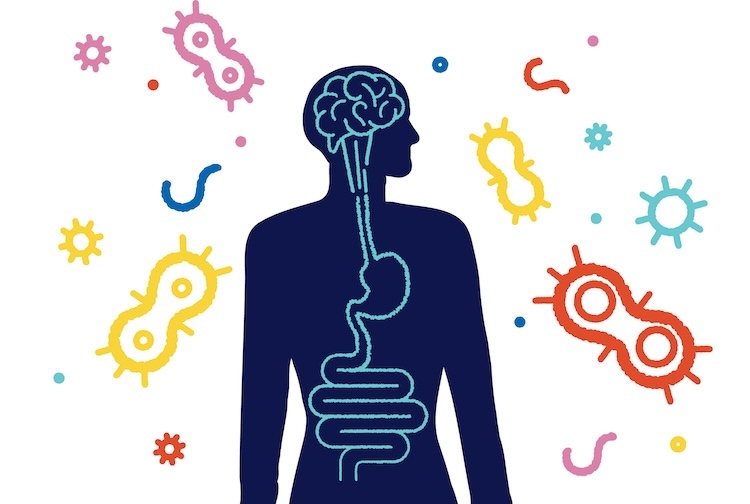Transferring gut microbes from a healthy donor to patients with liver disease could be used to prevent the recurrence of a debilitating brain condition, according to a clinical trial led by researchers at Virginia Commonwealth University and the Richmond VA Medical Center. The results were published on Jan. 10 in the Journal of Hepatology.
The research involved a procedure called fecal microbiota transplantation (FMT), in which processed bacteria from a healthy person’s stool is transplanted into a patient. In the new study, FMT was used in patients with cirrhosis and a history of recurrent hepatic encephalopathy (HE), a brain disorder that occurs among this patient population. It can lead to fatigue, inability to concentrate, confusion and, in some cases, coma or death.
HE is brought on by cirrhosis, an advanced form of liver disease in which a severely scarred liver fails to function. When the liver can’t work, toxins build up in the blood, where they can travel to the brain and cause the ailment. An imbalance in a patient’s gut microbes is essential to produce the toxins that cause HE. Current treatments for the disorder do not completely reduce the negative effects of the bacteria.
The study builds on nearly a decade of research by VCU gastroenterologist Jasmohan Bajaj, M.D., of VCU’s Stravitz-Sanyal Institute for Liver Disease and Metabolic Health and the Richmond VA Medical Center. He has studied the potential use of FMT to treat cirrhosis after linking the bacteria found in a patient’s intestinal tract and stool to hepatic encephalopathy.
Results of the study represent a significant step forward in treating these patients. Despite the treatments available for HE, patients remain at risk of recurrence and are often excluded from life-saving liver transplant lists.
“These results reinforce the potential of fecal microbiota transplantation as a novel therapy for hepatic encephalopathy,” said Bajaj, the lead author of the study. “Not only does FMT appear to be safe, but it also shows promise in reducing recurrences and improving quality of life, especially in patients with certain gut microbiome profiles.”
The randomized phase 2 clinical trial enrolled 60 participants with cirrhosis and a history of hepatic encephalopathy. Participants, who were already receiving other treatment for HE, received a combination of three doses that included transplanted bacteria and/or placebo. Each patient received a combination of two capsule doses and one liquid enema dose of FMT from either vegan or omnivorous donors.
The stool transplantation was shown to be safe across all groups, with no serious side effects related to the treatment, regardless of delivery route dose or donor type. Recurrence rates were significantly lower in patients receiving any FMT compared to those who received the placebo, 9% compared to 40%.
Participants who received the bacteria transplant reported better quality of life, fewer cognitive symptoms, and better overall functioning.
The researchers plan to further study the long-term effects of the procedure, including its impact on liver function and inflammation, and explore ways to improve donor selection and dosing regimens to maximize the efficacy of the transplant.
Co-authors of the paper from VCU and Richmond VA included: Amy Bartels; Brian Davis; M.D.; Andrew Fagan; Michael Fuchs, M.D.; Edith Gavis, R.N.; Mary Leslie Gallagher, N.P.; Hannah Lee, M.D.; Scott C Matherly, M.D.; Travis Mousel; Puneet Puri, M.D.; M. Shadab Siddiqui, M.D.; Richard Sterling, M.D.; and Leroy R Thacker, Ph.D.
The study was carried out in collaboration with colleagues from George Mason University and University of Minnesota. Funding for the research was provided by the U.S. Department of Veterans Affairs through a merit review grant.
Study: Microbiota transplantation reduces recurrence of brain disorder in patients with advanced liver disease



